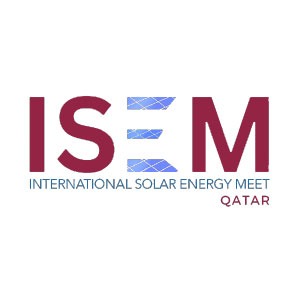- ASRY Awarded 2024 RoSPA Gold Medal in Health and Safety
- BP ponders shifting focus away from renewables, say sources
- QatarEnergy enters 10-year naphtha supply agreement with Japan’s ENEOS Corporation
- The International Energy Agency expects oil demand growth to slow in 2024
- The International Monetary Fund re-selects Kristalina Georgieva as its director
- Libya to target producing 1.4 million b/d by end 2024
- TotalEnergies launches the Marsa LNG project and deploys it multi-energy strategy in Oman
- H.E. Minister Al-Kaabi: Demand for oil and gas will continue for long; we have to be responsible, and Qatar is doing its part
- Egypt to stop exporting LNG starting from the beginning of May 2024
- QatarEnergy selects Nakilat to own and operate 25 conventional LNG vessels

Rossi elected as the first Secretary General of the Organization of Gas Exporting Countries

LNG Intelligence – The Organization of Gas Exporting Countries, known as (gas OPEC) has chosen Russia as the first Secretary-General, which is likely to emphasize the role played by Russia in this organization to which it contributed its establishment a year ago. Leonid Bokhanowski has been elected, previously was the vice president of «Stroytransgaz», a company specialized in extending pipelines.
In his first decision as a secretary general of the new organization, Bokhanowski asked for preparing a study on how to maintain the relationship between natural gas and oil prices in the future; an idea opposed by the International Energy Agency that defends the interests of industrial consumers of energy. The gas expert in the International Energy Agency Ian Krooncho sees that in case of the organization of gas exporters’ success in becoming a cartel like the Organization of Petroleum Exporting Countries, this may hinder the market forces that make the gas use less expensive than oil.
The member countries have taken advantage of the meeting to examine the current gas surplus in the world, and announced that they will focus on the coordination of investment policies to persuade the states not to flood the market with more gas. It should be noted that the gas surplus led to lowering the cost of heating and electricity around the world. The surplus is partly a result inventing new technologies in the United States allowing the production of natural gas from geological formations which were considered difficult to be consumed in the past. These new technologies act as a threat for gas prices and the revenues of gas exporting countries, with Russia at the beginning, which is considered the largest source of natural gas in the world. However, until now, European companies dealing with Gazprom, the largest Russian gas export company in Europe, are still paying high prices because of the attachment of their purchases with long-term contracts.
It is worth mentioning that the Gas Exporting Countries forum aimed at strengthening cooperation between the producing and consuming countries, exchanging experiences in the fields of gas exploration and transportation, and developing appropriate work scales for global gas markets. Twelve countries are currently participating in this new grouping: Algeria, Bolivia, Egypt, Equatorial Guinea, Iran, Libya, Qatar, Nigeria, Russia, Trinidad, Tobago and Venezuela as well as Kazakhstan and Norway as observers. The member states meet in an informal manner since 2001, and adopted a formal constitution in Moscow a year ago.










